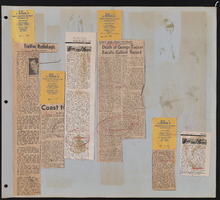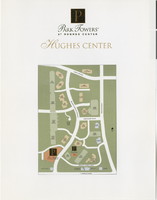Search the Special Collections and Archives Portal
Search Results

The Wheel of Rotary Las Vegas Rotary Club newsletter, April 27, 1950
Date
Archival Collection
Description
Text
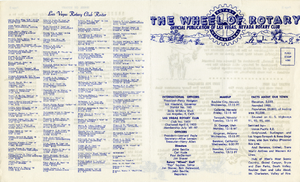
The Wheel of Rotary Las Vegas Rotary Club newsletter, April 6, 1950
Date
Archival Collection
Description
Text
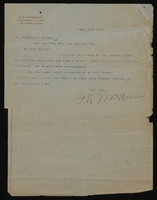
Correspondence, F.R. McNamee to H.E. George
Date
Archival Collection
Description
Text
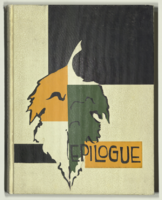
Epilogue: Nevada Southern University Yearbook, 1963
Date
Description
Yearbook main highlights: schools and departments; detailed lists with names and headshots of faculty, administration and students; variety of photos from activities, festivals, campus life, and buildings; campus organizations such as sororities, fraternities and councils; beauty contest winners; college sports and featured athletes; and printed advertisements of local businesses; Institution name: Nevada Southern University, Las Vegas, NV
Mixed Content

Transcript of interview with Donald E. Klinker by Barbara Fidelman, February 13, 1975
Date
Archival Collection
Description
On February 13, 1975, Barbara Fidelman interviewed former Caesar’s Palace cage manager, Donald E. Klinkner (born November 28th, 1935 in Los Angeles, California) in his home about his life and perspectives on Southern Nevada. The two discuss the different recreational activities that Klinker participated in during the fifties and sixties. The interview concludes with Klinkner explaining the misconceptions that tourists have about Las Vegas, Nevada.
Text

Transcript of interview with George Burns by Sandy Fink, April 03, 1976
Date
Archival Collection
Description
Text

